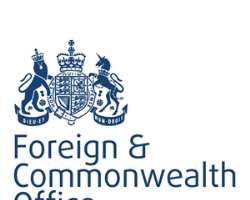UK Foreign Secretary hails deal between Sudan and South Sudan

LONDON, United-Kingdom, September 27, 2012/African Press Organization (APO)/ -- Speaking from New York, where he is attending the UN General Assembly, Foreign Secretary William Hague said:
“I welcome the news of the signing today of agreements between the Sudanese and South Sudanese Presidents. They represent a significant stride towards the goal of resolving all outstanding disputes between the two countries, and building a constructive and neighbourly relationship. The resumption of oil exports, enshrinement of the rights of citizens, and the immediate implementation of border security measures will be of enormous benefit to both countries.
“I commend the unwavering efforts of the African Union Panel, led by Presidents Mbeki, Buyoya and Abubakar, as well as those of the late Prime Minister Meles, which were instrumental in bringing about today's progress.
“Much work remains in the implementation of the agreements, and it is equally important to keep up efforts to seek an agreed solution on Abyei and other outstanding issues. The UK stands ready to support the implementation of these agreements. Putting them into practice will take continued commitment on both sides, and I urge both Presidents to maintain the leadership they have shown today.
On this positive day, we must not forget the people of Southern Kordofan and Blue Nile, who are still suffering greatly as a result of the ongoing conflict in those two areas. It remains critical that talks commence to agree a ceasefire, and that the Tripartite Agreements on humanitarian access, signed in early August, are put into immediate effect.”
The UK has supported the AU High Level Implementation Panel in its facilitation of talks between Sudan and South Sudan since the adoption of UN Security Council Resolution 2046 in May 2012. The Foreign and Commonwealth Office, Department for International Development and Ministry of Defence have jointly provided funding, technical experts and political support to ensure the AU Panel, led by former President Mbeki, had all it needed to carry out its crucial role.
Minister for Africa, Mark Simmonds MP, will today participate in a meeting of the Sudan – South Sudan Consultative Forum, taking place in New York. He will urge the international community to remain committed to supporting the implementation of today's agreements, and Sudan and South Sudan to reaching agreements on those issues that remain unresolved.
Note to Editors
• Sudan's decades-long civil war ended in 2005, with the signing of a Comprehensive Peace Agreement. A transitional period ended with a referendum in January 2011, and the birth of South Sudan as the world's newest nation in July 2011.
• A number of important issues were unresolved at independence, including the exact location of the border, how oil revenues would be shared, and the legal rights of citizens of one country residing or travelling in the other. In January 2011 South Sudan halted the export of oil. In March 2011, tensions rose significantly between the two countries, with each accusing the other of cross-border military incursions and supporting rebel movements in one another's territory.
• A Roadmap and timetable for resolving all outstanding issues was adopted by the African Union in April, and endorsed in UN Security Council resolution 2046 in May. Negotiations between the two countries as set out in the Roadmap resumed in Addis Ababa in May, overseen by an African Union panel, led by former Presidents Mbeki, Buyoya and Abubakar. The timetable for agreement expired on 2 August, but an additional period of talks was agreed at President Mbeki's request, culminating in today's agreements.
• The final status of Abyei has not yet been agreed. This is an area lying on the border which should have undergone a referendum prior to South Sudan's secession to determine which country it lay in. The eligibility, however, of different groups to vote remains disputed.
